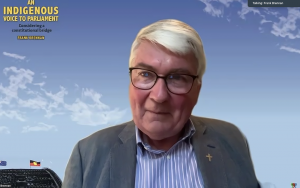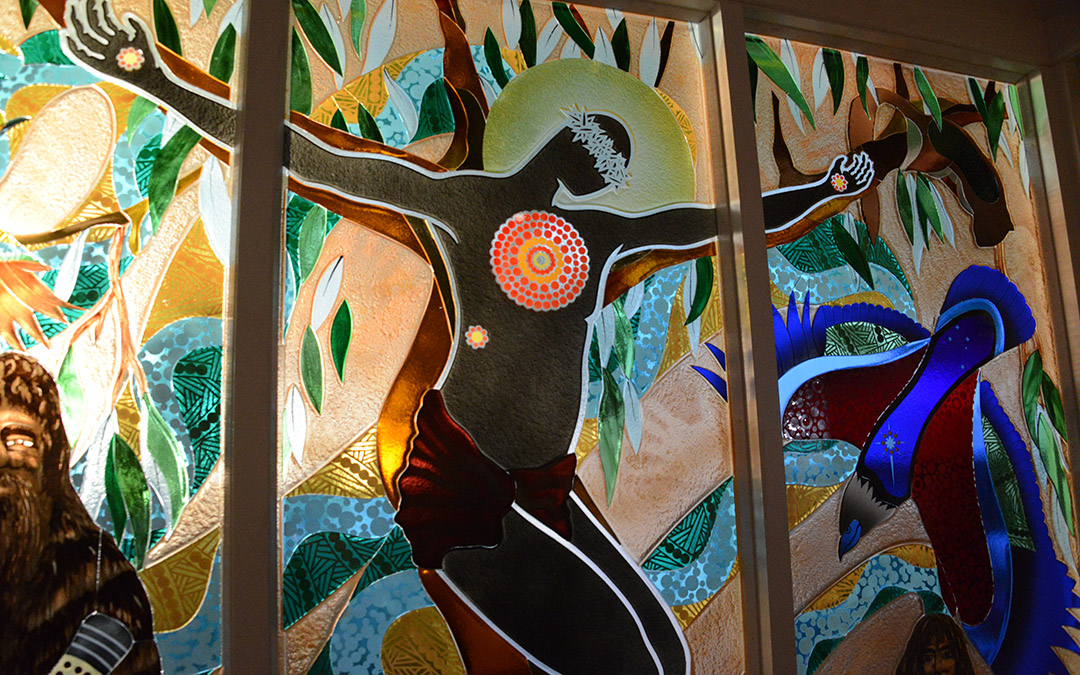It’s official. Australians will be voting in a referendum before the end of 2023, to determine whether we, as a nation, support an Indigenous Voice to Parliament being enshrined in the
Constitution. The MSS, together with the Australian Catholic Bishops Conference and Catholic Religious Australia (the network of congregational leaders across Australia) support the
creation of a new website by the National Aboriginal and Torres Strait Islander Catholic Council (NATSICC) – www.indigenousvoice.church – to help inform and educate fellow Catholics, and all people of good will, about the Upcoming referendum, and how best to discern this important question.
We encourage you to visit this website, which, in its opening lines remind us: At the heart of the upcoming Voice to Parliament Referendum is the recognition of Aboriginal and Torres Strait Islander Peoples, the world’s oldest continuing culture, in the Australian Constitution. As Catholics, we have a responsibility to listen to the voices of First Australians and to work towards a more just and equitable society. … The Voice to Parliament Referendum provides all Catholics with a unique opportunity to come together as a community and draw upon our faith and moral grounding to make an informed decision. One Journey, Together.
Fr Frank Brennan SJ speaks on Catholic Social Teaching and the Voice
 Recognising the need for thoughtful and well-informed discourse in the lead-up to the referendum on the Voice to Parliament, Catholic Social Services Victoria (CSSV) and Catholic Social Service Australia (CSSA) recently hosted the second in a series of three webinars, this time featuring Fr Frank Brennan SJ, a prominent lawyer, human rights activist and long-time advocate for the rights of Aboriginal and Torres Strait Islander people.
Recognising the need for thoughtful and well-informed discourse in the lead-up to the referendum on the Voice to Parliament, Catholic Social Services Victoria (CSSV) and Catholic Social Service Australia (CSSA) recently hosted the second in a series of three webinars, this time featuring Fr Frank Brennan SJ, a prominent lawyer, human rights activist and long-time advocate for the rights of Aboriginal and Torres Strait Islander people.
Fr Frank offered insights on the application of Catholic Social Teaching to the ‘questions that lie before us in 2023 in regards to the Voice referendum and reconciliation more broadly’.
As he welcomed the 181 webinar participants, Executive Director of CSSV Josh Lourensz stressed the importance of understanding Catholic Social Teaching and engaging in meaningful conversations, regardless of one’s voting stance.
In his presentation, Fr Frank drew upon the wisdom of St Pope John Paul II and Pope Francis to establish a framework for applying Catholic Social Teaching to the broader context of the forthcoming referendum, beginning with a reflection on Pope John Paul II’s visit to Alice Springs in 1986, when he met with Aboriginal and Torres Strait Islander Catholics and conveyed a powerful message:
The Church in Australia will not be fully the church that Jesus wants her to be until you, the Aboriginal people, have made your contribution to her life and until that contribution has been joyfully received by others
Fr Frank went on to recount an important moment in Australian history, when at a meeting with Queensland government officials in 1982, young Aboriginal leaders from remote areas expressed their dissatisfaction with the land rights and self-determination regimes that were being offered, prompting the government to rule out further meetings. Fr Frank recalled how Church leaders ‘stepped up’, providing the necessary money and resources for these leaders to meet again on Palm Island (one of the largest Aboriginal communities in Australia).
At this time, the late Thomas Geia and his colleague Rachel Cummins appeared live on national television. ‘I think it would’ve been the first time in Australian history that elected leaders from remote Aboriginal communities in far-away places like Cape York appeared on national television to talk about the aspirations of their people,’ said Fr Frank. ‘And if a Voice means anything, it’s about that.
And for us as Church, it’s about being able to be privileged to walk alongside, to give support, to give encouragement, and to be listening ears.
Acknowledging the challenges
Discussing the challenges posed by the referendum, Fr Frank acknowledged that they extend beyond political divisions: ‘It’s opening up a very big philosophical cleavage about what is justice and what do you expect a constitution to do?’ The referendum presents a ‘fundamental question’ for the entire country, as all voters must weigh the extent to which everyone should be treated equally with the kinds of circumstances ‘when special entitlements are not just allowed, but required within your legal structures and in your constitutional framework’.
As we consider these questions, Fr Frank urged everyone to ‘remain respectful of each other’. He recognised that some voters will already have made up their minds but emphasised the importance of engaging constructively with those who remain undecided.
‘Some of those who are undecided want more information and a better understanding of how the Voice might work, but they also want to be convinced that there is good moral reasons, even good theological reasons, for having a distinctive entity placed in a constitution, which is there for only a particular group in society—that is, those who are the proud inheritors of a culture and tradition spanning 65,000 years.’
Pope Francis provides further guidance
Turning his attention to the teachings of Pope Francis, Fr Frank referred to the 2013 apostolic exhortation Evangelii Gaudium, which highlights the importance of working from local traditions and cultures to express the truth of Christ, declaring that ‘It is an indisputable fact that no single culture can exhaust the mystery of our redemption in Christ’ (EG, §118).
Emphasising Pope Francis’ call for special care for Indigenous communities, Fr Frank acknowledged their unique connection to the land and quoted from the 2015 encyclical, Laudato Si (§146):
It is essential to show special care for indigenous communities and their cultural traditions. They are not merely one minority among others but should be the principal dialogue partners, especially when large projects affecting their land are proposed. For them, land is not a commodity, but rather a gift from God and from their ancestors who rest there a sacred space with which they need to interact if they are to maintain their identity and values. When they remain on their land, they themselves care for it best.
Fr Frank also quoted from Pope Francis’ 2020 encyclical, Fratelli Tutti, which stresses the importance of a healthy openness—one that does not threaten one’s own identity—and points out that ‘The world grows and is filled with new beauty thanks to the success of syntheses produced between cultures that are open and free of any form of cultural imposition.’
Drawing on these statements, Fr Frank argued that to recognise the voice and rights of Indigenous peoples is not to advocate for separatism but rather to respect their entitlements and enrich the nation.
Helen Christensen, Aboriginal Education Officer with Melbourne Archdiocese Catholic Schools, is a proud Tiwi Islander and Central Desert woman who is originally from Darwin and now lives and works on Wadawurrung land in Victoria. In response to Fr Frank, she emphasised the significance of education. It is important, she said, for the nation and the broader community to educate themselves about the deep connection that First Nations people have with the land.Acknowledging the long and difficult struggles experienced by past and current generations of Aboriginal and Torres Strait Islander people, she expressed her hopes for a better future for her grandchildren and great-great-grandchildren.
In his concluding remarks, Josh re-emphasised the value of engaging in conversations guided by Catholic Social Teaching as the referendum approaches:
The wisdom and insights from our popes remind us of the importance of justice, respect for cultural diversity, and the protection of the dignity and heritage of Aboriginal and Torres Strait Islander peoples. Hopefully we can all be equipped with these resources as we discuss and reflect upon the upcoming referendum with our families, colleagues and communities.

